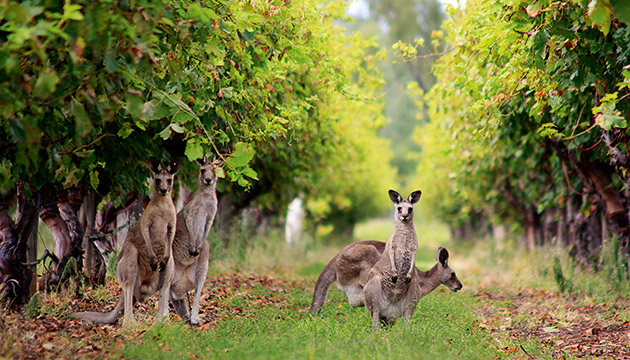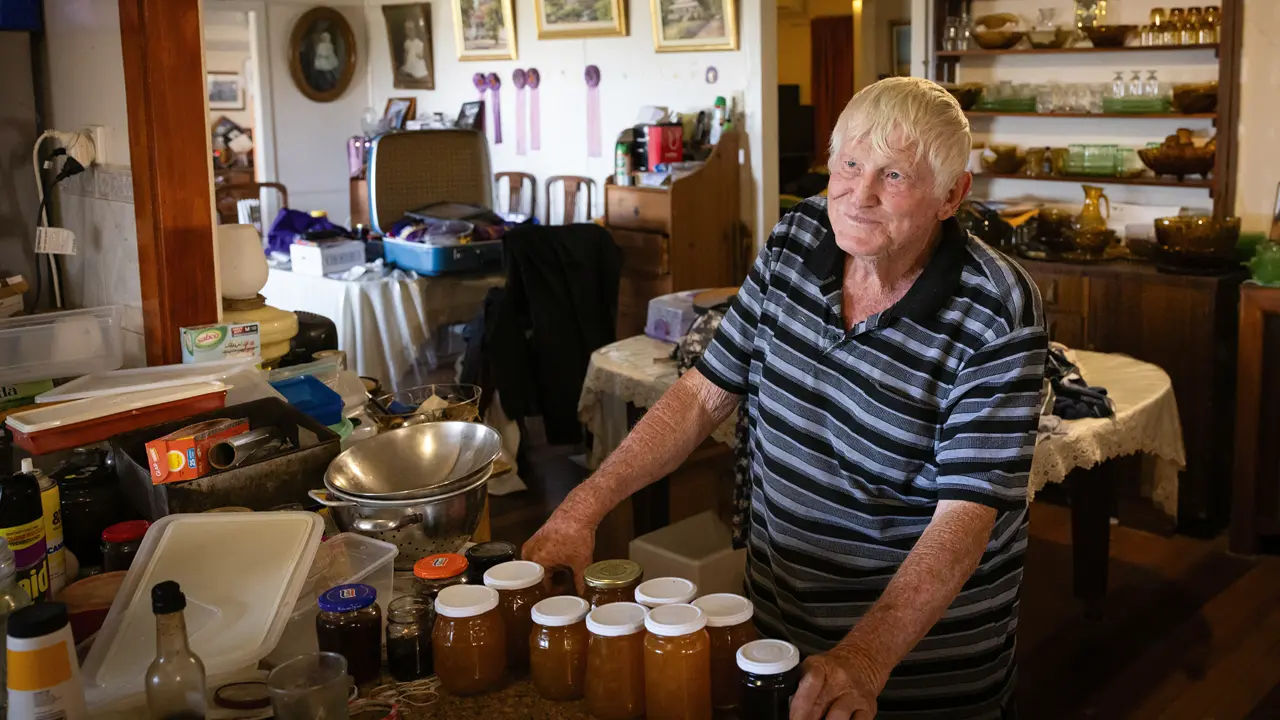Despite being hit by floods twice in two years, Riversands vineyards owners David and Alison Blacket were inspired to keep going by the stories of the local characters they feature on their wine labels.
Story By Janette Jenyns
David Blacket and his wife Alison had always wanted to raise their family on the land. Both grew up in western Queensland; David on what was originally his grandfather’s property “Tamanick”, south of Mitchell, and Alison on “Bendemere” near Yuleba. David worked as an agricultural extensions officer with the Department of Primary Industries (DPI) for 15 years, undertaking social research, training programs and marketing technology for farmers. It was work that he loved but still he and Alison yearned for a piece of land to call their own. Their son Nicholas was born severely disabled and his condition required frequent hospitalisation, so living in isolation away from specialised care was not an option. In 1996 they found “Riversands”. On an enviable stretch of the Balonne River, Riversands was blessed with deep sandy loam soils and a reliable water allocation. First established as a vineyard in the 1980s, it was planted with a variety of table grapes. Riversands seemed the perfect match; a profitable rural business close to a major centre with medical facilities to support their young son’s needs.
During their early years at Riversands the market for table grapes crashed. “And so began my PhD at the Riversands school of hard knocks,” David says ruefully. “There was one block of wine grapes planted at the time and so we decided to develop that side of the business.” David drew on his years of experience with the DPI to help him through those difficult years. The knowledge he’d gained in marketing, public relations, financial management and particularly his contacts within the industry underpinned his efforts to establish Riversands as a multi-award winning winery.
Today Riversands is a business that successfully combines table grapes and a winery. Two-thirds of the vineyard is planted to table grapes, the old varieties replaced by Menindee Seedless, Superior Seedless and Midnight Beauty, which are sold through the big supermarket chains. The 15.4 hectares of table grapes fund the big budget items for the vineyard and are the mainstay of the business. Wine grapes are trucked to the Ballandean Estate winery near Stanthorpe. “It’s just not feasible for a small winery like Riversands to invest millions of dollars in equipment,” David says. “At Ballandean our grapes are crushed, pressed and fermented under the supervision of the best winemakers for premium results. There’s no room in the market for weak links.”
This story excerpt is from Issue #80
Outback Magazine: Dec/Jan 2012










